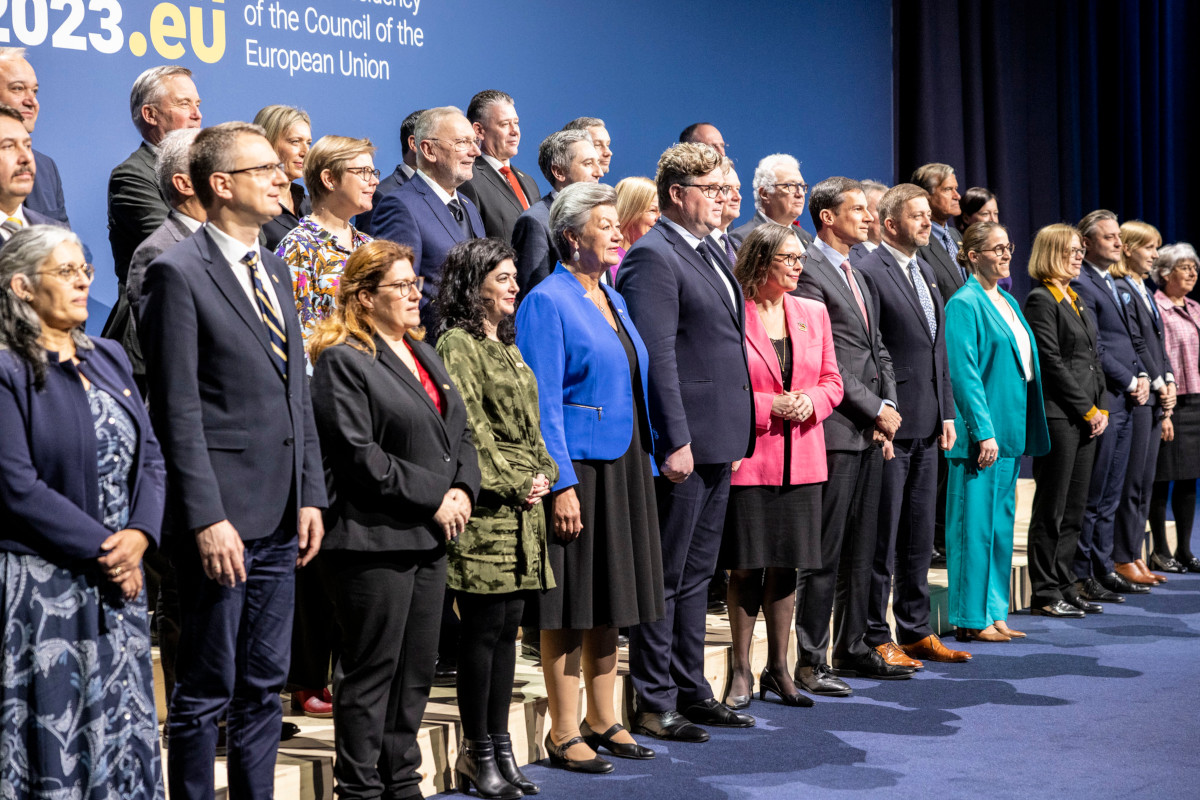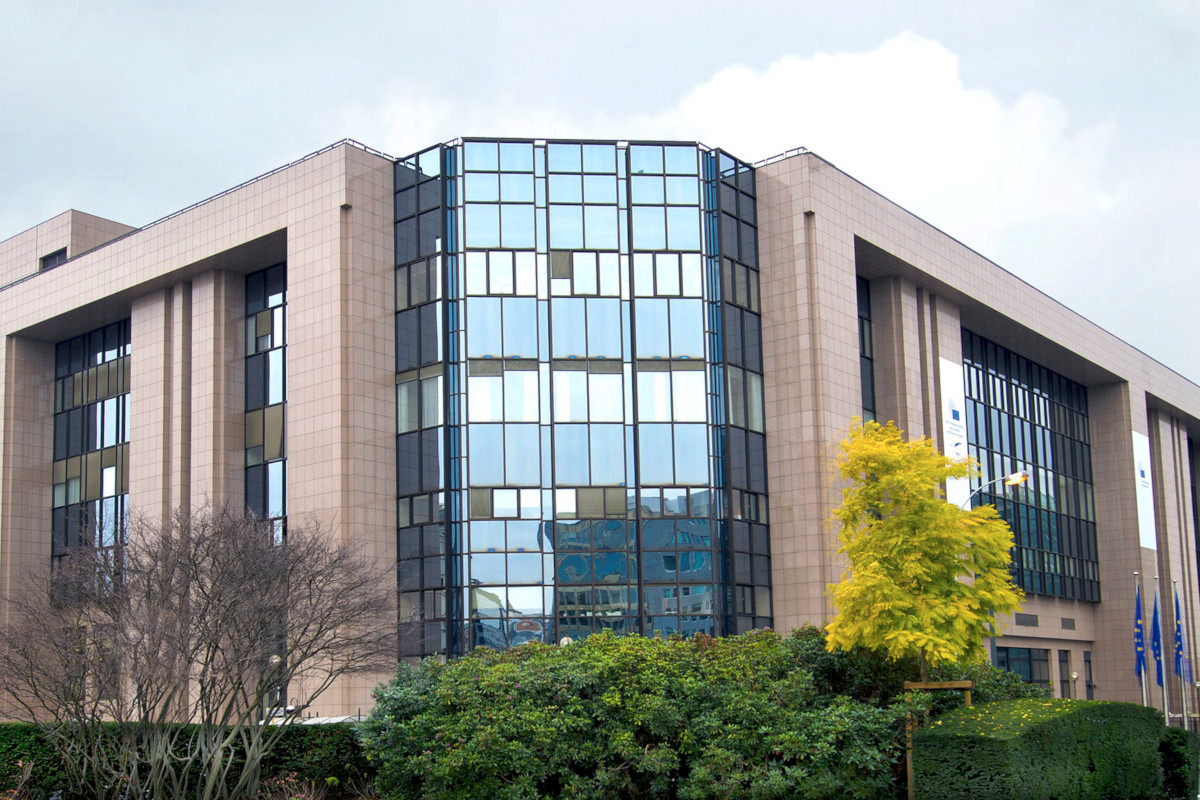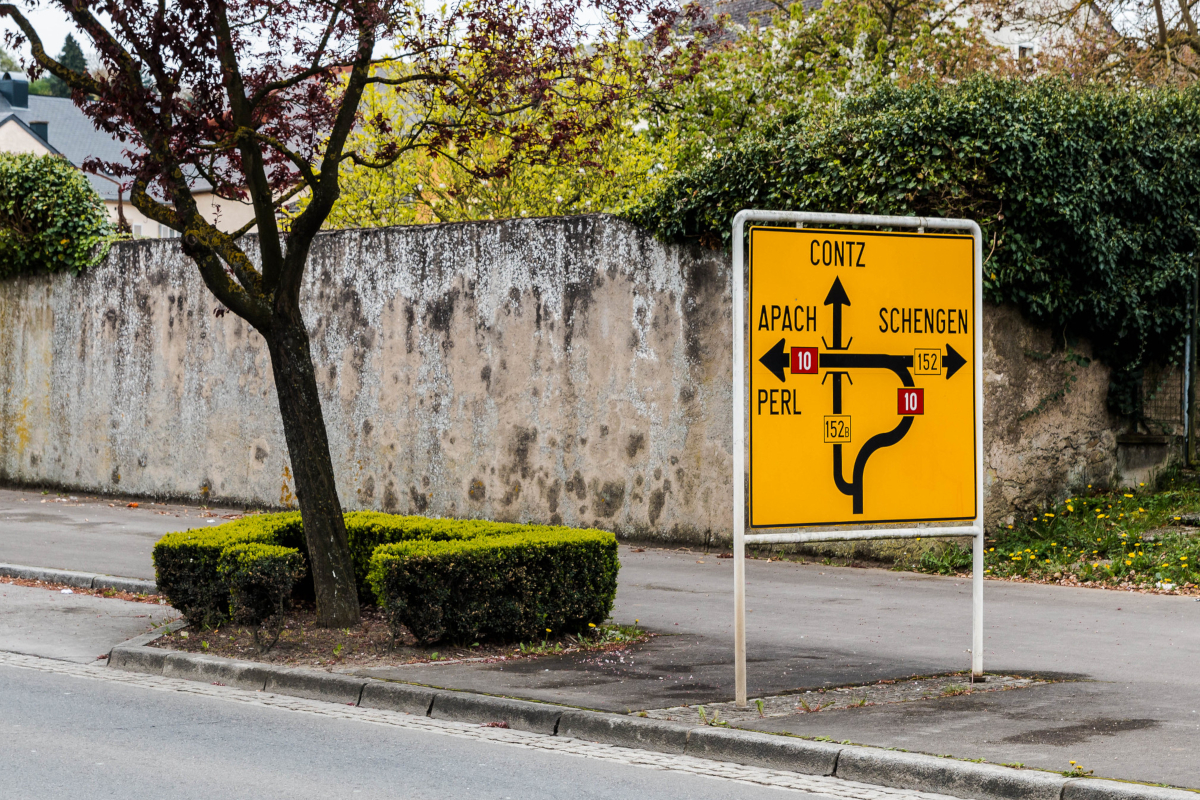Search and rescue in the Mediterranean: German response to Commission roadmap
Topic
Country/Region
08 June 2023
Ahead of the upcoming meeting of the European Commission's Contact Group on Search and Rescue on 16 June, the German authorities have issued a response to the Commission's draft roadmap that was published by Statewatch last month. The response is published here.
Support our work: become a Friend of Statewatch from as little as £1/€1 per month.

Image: European Space Agency, CC BY-SA 2.0
The responses of the German authorities to the points in the Commission's "Draft Roadmap towards a 'European Framework for Operational Cooperation on Search and Rescue in the Mediterranean Sea'" are included in the table below. The deliverables, actions, actors and "indicative milestones" come from the Draft Roadmap, the remaining text is taken from the German paper (pdf).
Deliverables included in the draft plan
|
Action |
Actor(s) |
Indicative milestone |
|
Deliverable 1) Agree on scope of the Framework for Operational Cooperation |
||
|
Agree on the situations to which the Framework for Operational Cooperation applies |
Volunteering SAR Contact Group members Frontex, European Maritime Safety Agency, European Fisheries Control Agency European Commission |
Agreement at the SAR Contact Group meeting on 16 June 2023 |
|
German position DEU agrees with the reflections on the definition of the scope of the framework. Generally, SAR operations and coordination should be carried out according to the international standards of the International Aeronautical and Maritime Search and Rescue Manual (IAMSAR Manual) Vol I-III. It should be clarified that in the last case described in the working paper (SAR operation outside the SAR area of an EU Member State, no coordination by the MRCC responsible for the area), a neighbouring EU Member State MRCC takes over at least the allocation of a disembarkation port in accordance with the principle of nonrefoulement. With reference to Chapter 3 of the Appendix to the SAR Convention, which emphasises the role of neighbouring Coastal States, in such cases neighbouring EU Member States should take over the necessary coordination and disembarkation, provided that the responsible non-EU MRCCs do not fulfil their obligations. In such a constellation other MRCCs outside the Mediterranean Sea would only be able to coordinate the rescue of people at sea to a limited extent as this would include the communication to local Mediterranean land based immigration authorities and border police, medical capacities and facilities, including the coordination of logistical possibilities for accommodation and food supply without having knowledge of the local environment and circumstances Additionally, some SAR units such as vessels not sending AIS signals (i.e. warships, Coast Guard and/or Border Police ships) will only be known by the local MRCCs enabling them to organise the rescue and disembarkation in a much better and effective way. Only these EU Coastal States can provide quick and immediate assistance, the most important principle of search and rescue. |
||
|
Deliverable 2) Improve situational awareness on SAR in the Central Mediterranean |
||
|
Agree on operational actions to facilitate information sharing in the short term and medium term |
Volunteering SAR Contact Group members Frontex, European Maritime Safety Agency, European Fisheries Control Agency [non-State actors, as information providers] Commission |
Technical discussion in working groups (February - May 2023) Agreement at SAR Contact Group meeting in June 2023 [Further refinement using EUROSUR and/or CISE as platform for information exchange end of 2023- early 2024] |
|
German position In this context, DEU also took notice of the draft concept paper “Improving situational Awareness in the Central Mediterranean” (“Working Paper WS 1”) shared with MS as part of Working Strand 1. The first phase of near real time exchange primarily concerns EU Member States’ MRCCs and FRONTEX locally based in the Mediterranean. The encouraged opening of new communication and reporting channels for SAR operations on JORA [Joint Operations Reporting Application, a Frontex system], EUROSUR [the European Border Surveillance System] or CISE [Common Information-Sharing Environment] should therefore also be discussed primarily between these partners. The added value of new communication and reporting channels for SAR operations, as suggested in the working paper, may be limited. There are already established communication channels for SAR operations between the eligible MRCCs, which may make an extension of communication via the aforementioned systems redundant. DEU takes note of information regarding concretely ongoing SAR operations in the Mediterranean Sea. Should the German MRCC Bremen gain the impression that necessary information does not arrive at the Mediterranean MRCCs or other involved parties, Bremen will forward the information about the already established communication channels. As MRCC Bremen does not carry out any other coastal state tasks in DEU except for the coordination of sea rescue services in the German SAR area on the North and Baltic Seas, DEU sees no need to link the MRCC Bremen to the communication platforms proposed here. A connection would entail a disproportionate amount of effort and costs. If the competent authorities of the Mediterranean countries have reliable knowledge of a reasonable misconduct of the master/crew of a German flagged ship, this information may be forwarded to the MRCC Bremen. With regard to an ex post information exchange, it was already clear during the first meeting, that most of the relevant information is already available and presented in different reports. DEU would like to thank the COM for the inclusion of our suggestions for the ex-post analytical reporting in the Working Paper WS1. We would like to suggest, in addition to the weekly or bi-weekly reports, to add monthly data and provide a yearly report. |
||
|
Deliverable 3) Establish operational focal points on SAR |
||
|
Appoint operational focal points in the MRCCs of SAR Contact Group members and relevant EU Agencies |
Volunteering SAR Contact Group members Frontex |
Agreement at the SAR Contact Group meeting in June 2023 on the establishment of focal points Nomination to take place by 15 July 2023 |
|
German position The added value of this proposal should be considered more differentiated. It may be helpful for the EU-Mediterranean countries. There is no added value for EU Member States that do not play an active role in coordinating SAR cases in the Mediterranean. In the latter countries, there is no need to designate EUROSUR NCCs to operational focal points on SAR, because they are not involved with SAR in the Mediterranean. At least in DEU, it is ensured that incoming information, which is also relevant for other national authorities, is transmitted to the relevant authorities via the MRCC Bremen. An added value for the Member States not directly involved in the SAR process in the Mediterranean is questionable. On the contrary, the question arises whether it wouldn’t lead to additional administrative workload without any results. Also, in practical use, EUROSUR lacks a “Near-real-time” information sharing, which would in the end hamper the SAR-measures. However, should further topics be included in the Framework for Operational Cooperation, which go beyond operational coordination of SAR cases, this point should be discussed again. |
||
|
Deliverable 4) Agree on operational roles and responsibilities of flag and coastal States |
||
|
SAR Contact Group members taking part in the Cooperation Framework agree on respective roles and responsibilities in a number of SAR scenarios |
Volunteering SAR Contact Group members |
Technical discussion in working groups (February - May 2023) Agreement at SAR Contact Group Plenary, in fall 2023 |
|
German position DEU is interested in hearing more about the case study approach for this deliverable to better understand the objective. As currently understood, this proposal primarily concerns the direct cooperation of neighbouring Mediterranean States in the operational organisation of SAR cases ending with the disembarkation of persons rescued from distress at sea. The starting point for the organisation of SAR services in the German SAR region on the North and Baltic Seas differs significantly from the situation in the Mediterranean Sea. While ITA in particular has to cope with a migration flow, mostly by sea, people heading for Germany generally reach German territory by land from the south, west and east. There are no significant migratory movements in DEU by sea. Therefore, the organisation of SAR services in DEU is not designed to organise migration-related SAR operations. The organisation and implementation of SAR services is carried out in accordance with IAMSAR and the trusting cooperation with the German neighbouring states. |
||
|
Deliverable 5) Agree on the type of information that shipmasters may be asked to collect |
||
|
Agree on a clearer definition of the information that shipmasters may be asked to collect about the SAR event and the rescued persons on-board for the responsible authorities |
Volunteering SAR Contact Group members [non-State actors] |
Technical discussion in working groups (June - fall 2023) Agreement by the SAR Contact Group Plenary in fall 2023 |
|
German position DEU agrees with the sentiment of the proposal, as this is also foreseen in IMO Resolution MSC.167(78). DEU would like to hear more about the envisioned form of implementation, especially as this deliverable can concern non-state actors. |
||
|
Deliverable 6) Conduct consultation on the framework for operational cooperation with other stakeholders |
||
|
Organise dedicated meetings with relevant stakeholders to include them in the cooperation framework |
Volunteering SAR Contact Group members [non-State actors] |
Technical discussion in working groups (fall 2023-2024) Agreement by the SAR Contact Group Plenary in 2024 |
|
German position DEU welcomes the proposal. DEU would like to inform the SAR Contact Group that Federal Foreign Ministry is planning to host an expert roundtable at the end of this month (30 May). Experts from international organisations, academia and civil society representatives will discuss the topic of search-and-rescue in the Central Mediterranean. Embassy representatives (of the members of the SAR Contact Group) will be invited to attend. Responsibility for the results will be solely borne by the different speakers and the report about the conference will be drawn up by an independent institution (i.e. academia). We hope that this can serve the goal for a better understanding between stakeholders. |
||
|
Deliverable 7) Develop a common understanding of distress situations |
||
|
Develop a more operational and common understanding of situations of distress, based on commonly agreed indicators on the basis of existing rules and practices |
Volunteering SAR Contact Group members European Commission |
Technical discussion in working groups (June - fall 2023) Agreement at SAR Contact Group Plenary, in early 2024 |
|
German position It may be difficult to find a definition that covers all eventualities of a potential distress situation. For this reason, the definitions of the SAR Convention already leave room for interpretation. In this respect, it seems questionable whether these proposed possible criteria can improve the situation. If all the criteria proposed by the Commission as indicator for the existence of a distress situation were to be used, there is little room left for cases involving migrant boats where no distress case can be assumed. When in doubt, however, the decision that should be taken is the one that best serves to save the lives of those in possible distress. |
||
|
Deliverable 8) Agree on standardisation/convergence of registration and certification rules on private vessels carrying out SAR as their predominant activity |
||
|
Agree on common standards / convergence of relevant rules |
Volunteering SAR Contact Group members [non-State actors] |
Technical discussion in working groups (April - fall 2023) Agreement by the SAR Contact Group Plenary in fall 2023- early 2024 |
|
German position Within the EU there are different requirements and certification processes for private vessels carrying out SAR as their predominant activity. In our view it could be beneficial to develop a harmonized EU guidance to the Flag States to ensure such vessels provide an appropriate safety level and be accepted by Port States and Coastal States. Such guidance should not apply to ships in regular SAR service under the Hamburg Convention. Additional guidance that assists NGOs, Flag States and Coastal States in caring for safety of life at sea regarding the cooperation between private vessels carrying out SAR operations based on private initiative and local regular SAR services, could further improve the current safety level and efficiency in distress cases. |
||
|
Deliverable 9) Launch joint initiative on SAR within IMO |
||
|
Agree on content of a possible regional initiative on addressing SAR challenges in the Mediterranean |
Volunteering SAR Contact Group members |
Technical discussion in working groups (June 2023- 2024) Agreement by the SAR Contact Group Plenary in 2024 |
|
German position The discussions during MSC 106 in November 2022 have shown that the issue of SAR in the context of refugee and migration movements at sea is a very European theme with European-specific aspects. Contributions from non-European IMO Parties have set rather different content priorities. As a result of last year’s discussions at IMO level, resolution MSC.528(106) has been drafted. Therefore, at this stage, DEU sees no need for a joint initiative on SAR within IMO, but would rather continue the dialogue in this format. |
||
Documentation
Our work is only possible with your support.
Become a Friend of Statewatch from as little as £1/€1 per month.
Further reading

European Commission wants common rules on "registration and certification" for Mediterranean search and rescue organisations
A "Draft Roadmap towards a 'European Framework for Operational Cooperation on Search and Rescue in the Mediterranean Sea'," obtained by Statewatch and published here, indicates that the European Commission is aiming for "standardisation/convergence of registration and certification rules on private vessels carrying out SAR [search and rescue] as their predominant activity." This could be used to hinder the activities of search and rescue organisations.

Joint Statement: Tunisia is neither a safe country of origin nor a place of safety for those rescued at sea
We, the undersigned organisations, issue this statement to remind once again that Tunisia is neither a safe country of origin nor a safe third country. Therefore, it cannot be considered as a place of safety for people rescued at sea.

Border externalisation needs “whole-of-government approach” says Swedish Presidency
The Swedish Council Presidency has reiterated the longstanding call for “a true whole-of-government approach and sustained engagement” at all levels to implement EU plans to externalise migration and border control, in a document setting out plans to follow up on European Council conclusions agreed in February.
Spotted an error? If you've spotted a problem with this page, just click once to let us know.

